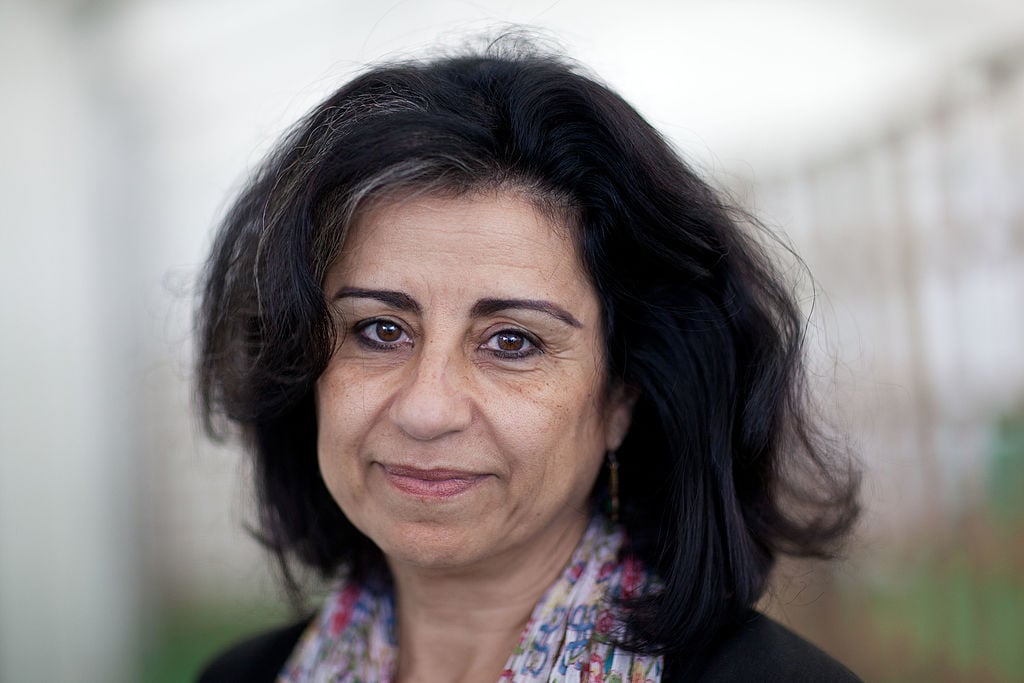
Disagreements between museum trustees usually remain behind closed doors, but the Egyptian author Ahdaf Soueif has resigned from the board of London’s British Museum, making public her reasons for reluctantly stepping down. In a powerfully worded comment piece she regretted the institution’s lack of engagement with “the legitimate and pressing concerns of young people across the planet.”
Soueif cites the institution’s relationship with the oil giant BP; its treatment of low-paid, sub-contract workers; and its reluctance to engage in a conversation about the restitution of African heritage acquired during the colonial era in her op-ed for the London Review of Books.
The bestselling author of The Map of Love, who has been on the museum’s board since 2012, writes that while she is “sad” to give up her position, she believes it is “the most useful” thing she could do under the circumstances.
Back in 2016, Soueif reveals that she raised with fellow trustees the issue of BP’s sponsorship of its most high-profile exhibitions. “It was an education for me how little it seems to trouble anyone,” Soueif writes. She argues that the museum could raise any lost funding elsewhere, but she believes that the museum continues to back BP partly in order to avoid alienating “a section of the business community.”
The novelist writes that she also resigned because of the museum’s lack of public engagement with the debate around the restitution to Africa of colonial-era artifacts in the wake of the radical Savoy-Sarr report on collections in France’s museums. Despite the fact that the British Museum was “born and bred in empire and colonial practice,” and is well-positioned to lead the conversation, she writes, “it hardly speaks.”
Soueif also weighs in on the museum’s treatment of outsourced staff after its sub-contractor, the company Carillion, went bust in January 2018. Sixty museum workers, including cleaners, petitioned to be rehired by the museum directly as was happening at other arts institutions, but the British Museum “would not even enter into discussions” with them, Soueif writes. She adds that she was “shut down” on this issue when she raised it. The minutes of the board meeting following the company’s liquidation blandly state that its impact on “facilities management” was discussed, and the risks assessed.
Soueif writes that public cultural institutions, especially the BM, have a moral duty to position themselves on contemporary ethical and political questions. “The world is caught up in battles over climate change, vicious and widening inequality, the residual heritage of colonialism, questions of democracy, citizenship, and human rights,” Soueif explains. The British Museum holds “a unique place of authority in the nation’s—perhaps the world’s—consciousness,” she writes, praising its expert staff.
The ex-board member ends her article with a series of questions, asking: “Will the museum use [its position] to influence the future of the planet and its peoples? Or will it continue to project the power of colonial gain and corporate indemnity?”
The chair of the British Museum trustees, Richard Lambert, said in a statement that the trustees “regret” Soueif’s decision to step down. A former editor of the Financial Times, Lambert says that Soueif was a “valued voice,” adding that she “has made a significant contribution to the board… and has played a crucial role in deepening the British Museum’s engagement with Egypt, the wider Middle East, and with audiences and partners throughout the world.”
Activists who have long campaigned for the British Museum to end its partnership with the energy giant welcomed Soueif’s decision. Danny Chivers, a member of the group BP or not BP? tells artnet News that Soueif has revealed “a devastating insight into the moral bankruptcy at the top of the British Museum.”
“From BP sponsorship to low-paid workers’ rights to decolonizing the museum, Ahdaf Soueif has revealed a serious lack of care and concern for the museum’s impacts on the wider world,” Chivers says. He adds: “Let’s hope her decision will spur meaningful action from the museum’s management and other trustees who have failed—or remained silent—on these crucial issues.”
The co-director of the group Culture Unstained, Jess Worth, tells artnet News that the BM’s board “has chosen to dodge controversy and shut down debate rather than grapple with complex issues and take difficult ethical decisions.” She adds: “The British Museum now urgently needs to show it’s taking these issues seriously: by ending the BP deal, bringing all its workers in house with full benefits, and engaging with the challenges of decolonizing its collections.”
There are 25 museum trustees, many with corporate backgrounds. Fifteen are appointed by the UK Prime Minister. The current artist-trustee is Grayson Perry.